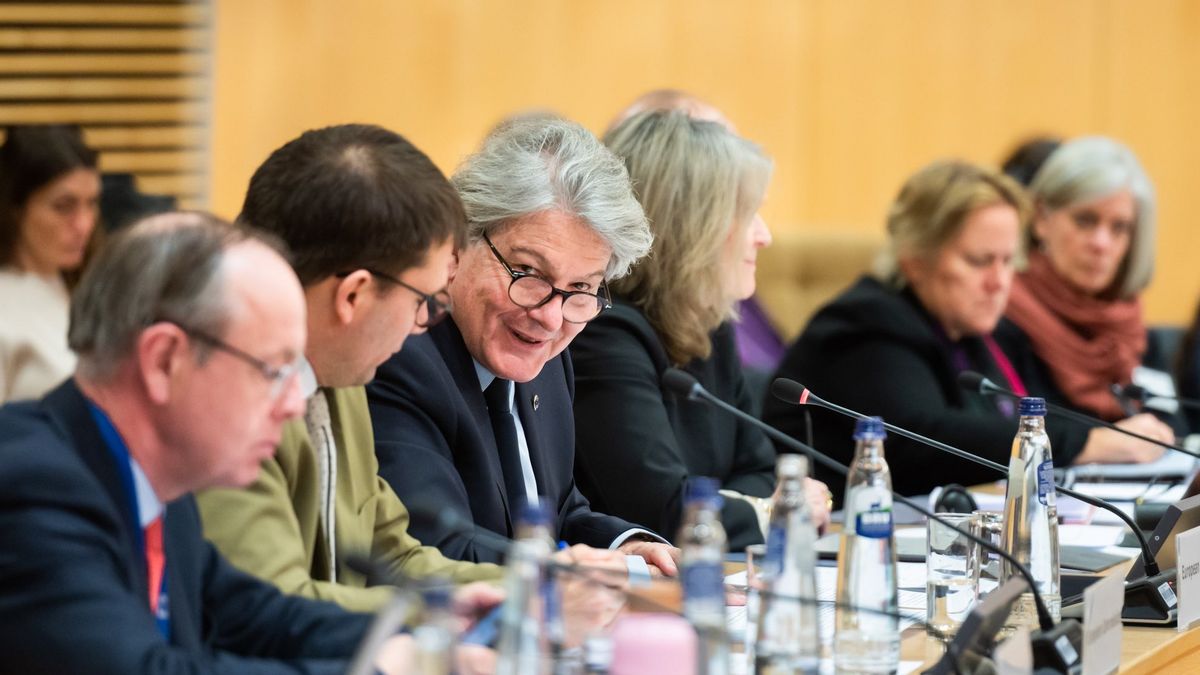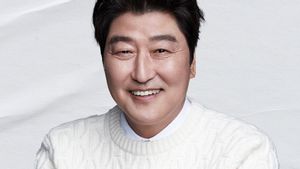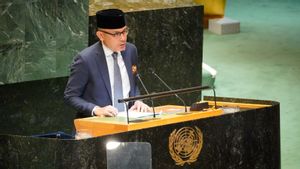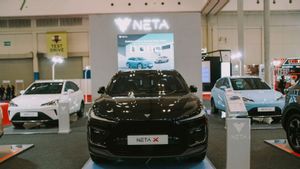JAKARTA - EU industry chief Thierry Breton said the new rules on artificial intelligence proposed recently had the aim of addressing concerns about risks surrounding chatbots such as ChatGPT and AI technology.
Just two months after its launch, ChatGPT, which can produce articles, essays, jokes, and even poetry in response to user requests, has been assessed as the fastest growing consumer app in history.
Some experts have expressed concern that systems used by such applications could be misused for plagiarism, fraud, and the spread of misinformation. Even when proponents of artificial intelligence call it a technological leap.
Breton said the risks posed by ChatGPT from OpenAI, a private company backed by Microsoft Corp, and the AI system underscore the urgent need for regulations proposed last year in a bid to set global standards for technology. The rules are currently being discussed by the EU Commission in Brussels.
"As the ChatGPT shows, AI solutions can offer great opportunities for businesses and citizens, but can also pose risks. This is why we need a strong regulatory framework to ensure reliable AI based on high-quality data," he told Reuters in a written comment.
Microsoft declined to comment on Breton's statement. OpenAI, whose app uses a technology called generating AI, did not immediately respond to a request for comment.
OpenAI said on its website that it aims to produce artificial intelligence that is "benefitful to all mankind" because it seeks to build a safe and useful AI.
Under EU draft rules, ChatGPT is considered a general purpose AI system that can be used for various purposes including high risk ones such as candidate selection for jobs and credit assessments.
Breton wants OpenAI to work closely with downstream developers of high-risk AI systems to enable their compliance with the proposed AI law.
"The fact that the generative AI has just been included in the definition shows the speed of technological development and that regulators struggle to keep up with this speed," a partner at a US law firm said.
According to executives of several companies involved in the development of artificial intelligence, they fear their technology will be classified in the "high risk" AI category that will lead to stricter compliance requirements and higher costs.
A survey by industry agencies implementing AI shows that 51% of respondents expect a slowdown in their AI development activities as a result of the AI Act.
Effective AI regulations should be centered on the highest-risk apps, Microsoft President Brad Smith wrote in a blog post on Wednesday, February 1.
"There are days when I am optimistic and there are times when I am pessimistic about how humanity will use AI," he said.
Breton said the European Commission was working with the Council of the European Union and the European Parliament to further clarify the rules in the AI Law for general purpose AI systems.
"People need to be told that they are dealing with chatbots and not humans. Transparency is also important related to the risk of bias and false information," he said.
Generation AI models need to be trained on text or large numbers of images to make the right responses leading to alleged copyright infringement.
Breton said upcoming discussions with lawmakers on AI regulations would cover these aspects.
Concerns about plagiarism by students have prompted several public schools in the US and Sciences Po, universities in France to ban the use of ChatGPT.
The English, Chinese, Japanese, Arabic, and French versions are automatically generated by the AI. So there may still be inaccuracies in translating, please always see Indonesian as our main language. (system supported by DigitalSiber.id)









